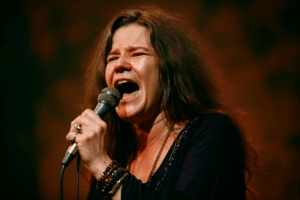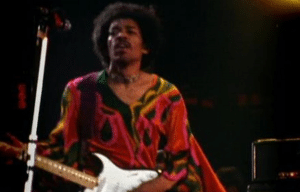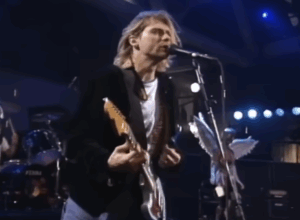Can’t Escape These 3 Most Overplayed Songs From the 1960s

via @Jim Morrison / YouTube
There’s a fine line between timeless and tiresome. A track that once felt fresh and full of energy can slowly lose its magic when it’s repeated too often, whether on the radio, in commercials, or in every retro playlist you stumble across. The 1960s gave us some of the most beloved songs in popular music history, but a handful have crossed into that territory where constant replay makes them more of a burden than a blessing.
Part of the issue is familiarity. These songs are classics for a reason—they connected with a massive audience and helped define an era. Yet their very popularity has chained them to heavy rotation for decades, leaving little room for listeners to miss them, let alone rediscover their charm. You hear the opening notes and already know what’s coming, not because you seek it out, but because it’s everywhere.
This article zooms in on three tracks from the 1960s that fit that description perfectly. They’re the tunes you can’t run from, no matter how many times you’ve rolled your eyes at their inclusion in another oldies set. Love them or loathe them, these overplayed songs remain cemented in the cultural soundtrack—and escaping them is simply not an option.
The Doors – “Light My Fire”, The Doors
Depending on your view, Jim Morrison was either a rock and roll poet or a troubled star who lived recklessly. Regardless, Morrison’s charisma and mystique turned him into one of rock’s most enduring figures. “Light My Fire,” from The Doors’ self-titled debut in 1967, was the track that catapulted them to stardom, and its opening organ riff remains one of the most recognizable intros in rock.
The driving force behind the song wasn’t a guitar, as one might expect from a 60s rock anthem, but Ray Manzarek’s Vox Continental organ. That psychedelic swirl defined the band’s sound just as much as Morrison’s booming voice. FM radio at the time loved sprawling versions of tracks, but DJs still trimmed “Light My Fire” down to a radio-friendly length to keep it in heavy circulation.
Its overplay is precisely what’s dulled the edges of its originality. While fans still admire it as a milestone in psychedelic rock, many would rather revisit deeper Doors cuts like “L.A. Woman” or “Riders on the Storm.” For a song that once sounded like a breakthrough, “Light My Fire” has been worn down by sheer repetition.
Van Morrison – “Brown Eyed Girl”, Blowin’ Your Mind!
It’s ironic that Van Morrison’s signature hit isn’t a song he holds in high regard. “Brown Eyed Girl,” released in 1967, is undeniably catchy, but the artist himself has admitted he “cringes” every time he has to play it. Despite that, its breezy guitar intro and singalong chorus have kept it on radio playlists and wedding receptions for nearly six decades.
The song’s mass appeal is hard to deny—over a billion streams on Spotify prove its staying power. But as Van Morrison himself pointed out, it’s essentially a teenage song, and one that doesn’t reflect his deeper, more nuanced work. Fans who explore his catalog beyond the surface often discover richer gems like “Moondance” or the raw energy of “Gloria.”
Still, “Brown Eyed Girl” refuses to loosen its grip on pop culture. Its sunny nostalgia ensures it will never disappear, even if both artist and audience sometimes wish it would. Overplayed or not, it’s become a cultural shorthand for carefree 60s vibes, whether listeners want it or not.
Iron Butterfly – “In-A-Gadda-Da-Vida”, In-A-Gadda-Da-Vida
Seventeen minutes is a lot to ask from any listener, and Iron Butterfly’s “In-A-Gadda-Da-Vida” pushes that limit to the extreme. Released in 1968, the track became a staple of psychedelic rock, thanks to its hypnotic riff and sprawling solos. But for many, including die-hard rock fans, it’s a song that’s easier to recognize than to actually sit through from start to finish.
The track’s quirks only add to its legend. Originally intended to be called “In the Garden of Eden,” the title was famously garbled by a drunken Doug Ingle, leaving drummer Ron Bushy to jot down the slurred words as “In-A-Gadda-Da-Vida.” As fate would have it, Bushy also benefited from the mistake—his lengthy drum solo is one of the defining features of the song.
Despite its odd origins, the song managed to break into the mainstream through its shorter, edited version, which reached the Top 40. That version is the one most often played, and it’s also the reason listeners have been unable to escape its presence. Over fifty years later, “In-A-Gadda-Da-Vida” remains locked in the rotation of classic rock playlists, proving that even the strangest of songs can become overplayed.














